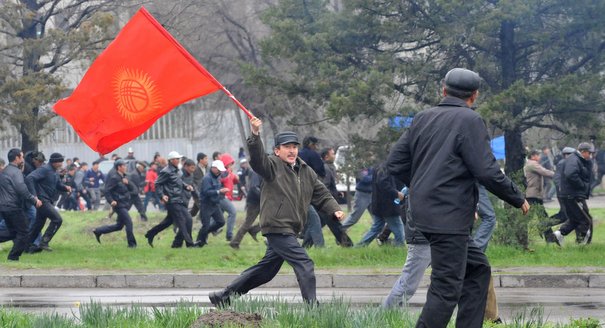Can we say that the events in Kyrgyzstan have now passed the point of no return, and that the opposition forces, which have managed to put in place an interim government, have won the final victory?
The fact that the country literally exploded in a matter of hours is the first argument in favor of the success of this latest “revolution.” The conflict in provincial Talas was the spark in the powder keg. Second, the opposition leaders, who were immediately detained by the authorities, proved the more solid side and showed that they have established roots in society. Thus, even with the main opposition leaders absent, the momentum of the uprising continued to grow. Third, the authorities were frightened and at a loss. The powerful Bakiev clan, led by the president and his younger son, Maxim, and including numerous brothers, proved weak and unable to make an impact as a political force.
But most experts considered right up until the end that Bakiev’s position was solid and that he would have no trouble dealing with his opponents and preventing public demonstrations, which everyone assumed would not be mass events.
Bakiev simply fled. It is said that he wanted to fly to one of the neighboring countries, but, realizing that no one was waiting for him in any neighboring capital, nor in capitals further away, he probably bunkered down in the south of Kyrgyzstan, where his position is stronger than in the north.
In short, the opposition has won the first round.
What problems could the new prime minister – Kyrgyzstan’s “iron lady” Roza Otunbaeva – and her colleagues face?
First of all, they need to deal swiftly with the pogroms and looting that have swept Bishkek and get the law enforcement agencies working for the new government.
Second, they need to maintain unity among the opposition forces. Previous unfortunate experience shows that unity disappears as soon as the moment comes to divide the levers of power.
Finally, it is not yet clear what line Bakiev will take. He has not announced any intention to step down from the post of president and, it seems, still has some potential to continue the fight.
It is possible that the situation in Kyrgyzstan could be finally decided over the next few hours.
